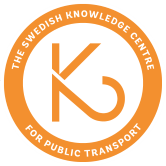Article highlighted
The role of vision processes in the development of the transport system

Researchers affiliated with K2 have reviewed existing research on vision processes and analysed several visions that have influenced the Swedish transport system over time. The results are summarised in the knowledge overview Visions of the Future Transport System.
Malin Henriksson from VTI is one of the researchers involved in the overview.
"Vision work can be an important unifying force, helping to mobilise stakeholders within a particular field," says Malin.
To understand how the idea of a desirable transport system has evolved over different periods and contexts, Malin and her colleagues focused on three key Swedish visions for the transport system: Sweden's Future Transport System ("Sveriges framtida transportsystem") from 1987, Koll Framåt from 2008, and Future Collective Mobility ("Framtidens kollektiva mobilitet") from 2022.
Not all visions for the transport system have had a more sustainable system as their starting point. It is only in the 2022 vision that reducing car dominance became a key focus.
"This is not surprising at all, as what are considered important societal issues change over time," Malin explains.
A common feature of the three studied visions is that they primarily target decision-makers and industry representatives, with citizens and travellers mainly seen as recipients of governance and planning.
"The key to involving travellers might be ensuring that citizens are more actively engaged in future vision work. The vision processes where people’s ideas about their future and what constitutes a good life are given space show that cars do not have to play a central role," says Malin.
The final discussions in the knowledge overview offer support and advice for those planning to lead a vision process.
"The most important thing before starting is to think carefully about which discussions you want to have and what room there is for different opinions within the framework of the process," concludes Malin.
The knowledge overview Visioner om framtidens transportsystem was written by Malin Henriksson, Jens Portinson Hylander, and Karin Winter.
*The quotes in this article are translated from Swedish to English.
